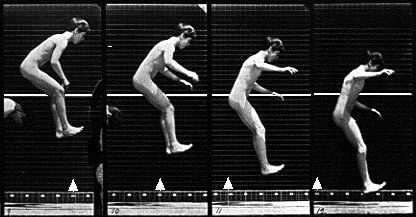
Fashioning the Body: Versions of the Citizen, the Self, and the Subject
The Evergreen State College | Fall 2007-Winter 2008
User Login |
Corpus – Thoughts from 10/3 ClinicI thought I would use my first corpus entry to expand on a couple of thoughts I had in clinic but didn’t have the chance to express. During clinic, I talked a bit about this quote on page 61: “The confession is a ritual of discourse in which the speaking subject is also the subject of the statement; it is also a ritual that unfolds within a power relationship, for one does not confess without the presence (or virtual presence) of a partner who is not simply the interlocutor but the authority who requires the confession, prescribes and appreciates it, and intervenes in order to judge, punish, forgive, console, and reconcile…” I was talking about the interesting structure of the sentence which made the person requiring the confession almost passive in the process. I think I worked it out in my mind a bit better after we had already moved on. I think this really links Foucault’s ideas to the concept of the triad of power. However, this is a complicated triad, because one person fills two of the roles. What helped me envision this was Freud’s idea of the joke that Elizabeth talked about yesterday, where one person tells the joke, another person is the subject of the joke, and a third person laughs at the joke. In the confession, the confessor, “the speaking subject [who] is also the subject of the statement,” is both the one who tells the joke and the one who is the subject of the joke. The person being confessed to is the one who laughs. This is another example of Foucault moving beyond the top-to-bottom structure of power. It’s not one person another to confess, but one person, who has internalized the normalizing discourse of the confession, forcing themselves to confess while the other person observes and records. The mention of the latter person possibly having a “virtual presence” drives home this idea. The person who requires the confession may not even be present, may not even be a specific person.
I was also thinking about the idea of confessions as a tool to transform behavior into identity, and it gave me insight into something I think about a lot: guilty pleasures. I don’t believe in guilty pleasures. I think that saying, “Oh, America’s Next Top Model is one of my guilty pleasures,” is a way of talking about ANTM while still trying to keep it separate from your identity. The implication, I think, is, “I have my real, true, inner self, and the fact that I watch ANTM is separate from that, so please don’t think less of me.” Thinking about this in seminar, I realized that the idea of confession is very related to this. After all, if you think people will incorporate the fact that you watch ANTM into your identity as they see it, and you don’t want them to, why not just keep quiet about it, instead of admitting it and labeling it a “guilty pleasure?” And now I have an answer: because of confession. We are trained to confess our behavior, especially the behavior that we consider abnormal. Obviously, watching America’s Next Top Model is a very different thing from being, for example, a homosexual, with a lot less baggage (in some circles!), so people tend to have less difficulty confessing to the former than the latter. Also, homosexuality is constructed to be much more linked to identity than television viewing habits, so you also tend not hear men saying, “I sleep with other men, but it’s just a guilty pleasure.” We’ve already been trained not to expect to get away with confessing homosexuality without it altering our identity, both as we see it and as others see it. The frequency of people talking about “guilty pleasures” when it comes to popular culture suggests to me that many of us still hold hope that not everything we enjoy says something about us.
p.s. For the record, I consider watching America’s Next Top Model to be an essential part of my “identity,” both as I construct it for myself and as I hope others perceive it.
Submitted by Spencer on Wed, 10/03/2007 - 12:36pm. Spencer's blog | login or register to post comments | printer friendly version
|
Who's onlineThere are currently 0 users and 1 guest online.
Events
|
|||||||||||||||||||||||||||||||||||||||||||||||||